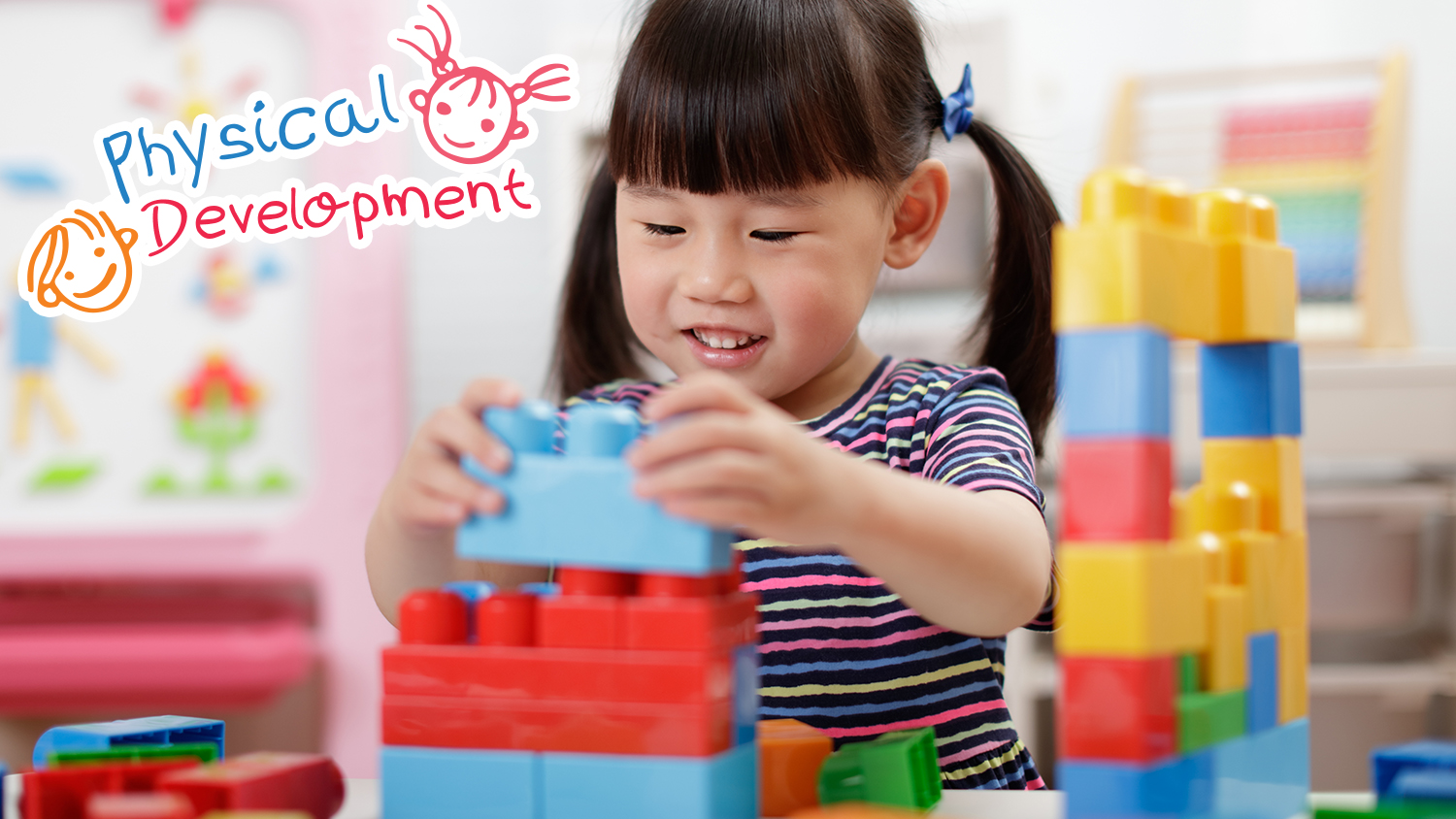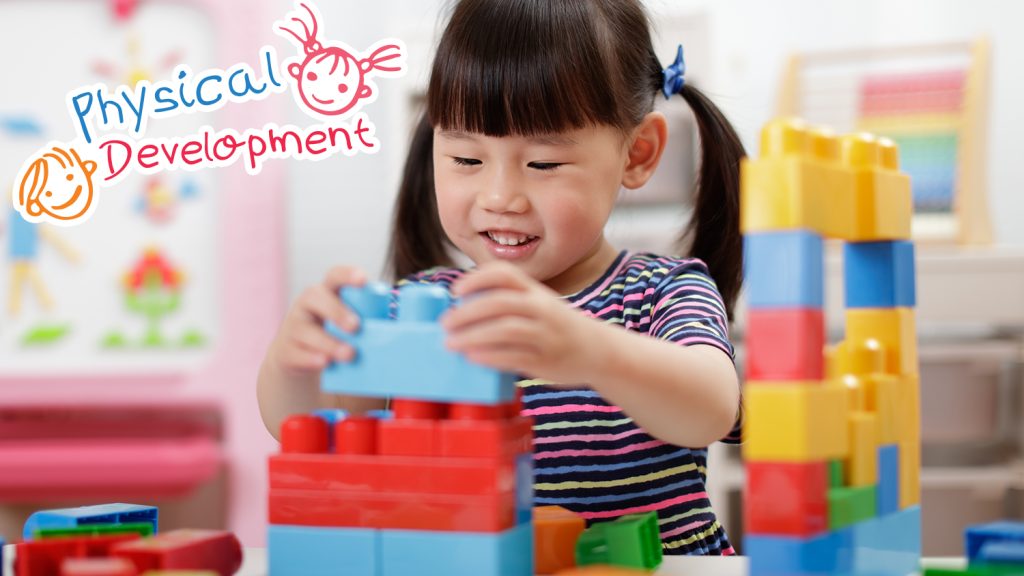
The Beautiful Early Years!
Key Area No.7 – Physical Development
I was shocked when, in my first visit to a nursery post Lockdown, the teachers had noticed the children’s core stability wasn’t developed. Having a strong core is like building the foundation for the body to do other physical things, it’s vital. What had been missing? Lots of adventurous outdoor play.
So much of what we might see as ‘just fun’ is an absolutely vital part of our children’s development. This month, in the last of the ‘Beautiful Early Years’ series we are going to explore Physical Development and how we can support our children to become confident masters of movement.
Physical Development is one the three Prime Areas in the Early Years Foundation Stage Curriculum. This includes Gross Motor Skills – which are big movements e.g. running, balancing etc., and Fine Motor Skills – small more precise movements e.g. using a thumb and finger like a pincer to pick something up, holding a paintbrush and using a spoon.
As with all areas of child development EVERY CHILD IS DIFFERENT. My eldest walked at one, my youngest was two. Therefore, it took my youngest far longer to be able to balance, run without falling etc. Remembering this and avoiding comparing to others, here are some great activities to support your child’s physical development…
Wild Play
As with everything in life some of our achievements are down to skill but confidence is essential. Finding a wild space is powerful for enabling children to explore with their body, taking risks. This might be navigating an uneven forest floor, balancing along a log, climbing up a steep slope and climbing a tree.
Adventuring involves risk and challenge, through this confidence grows, whilst also developing their physical strength and skill. Managing safety is essential but also adopting a hands-off approach wherever possible!
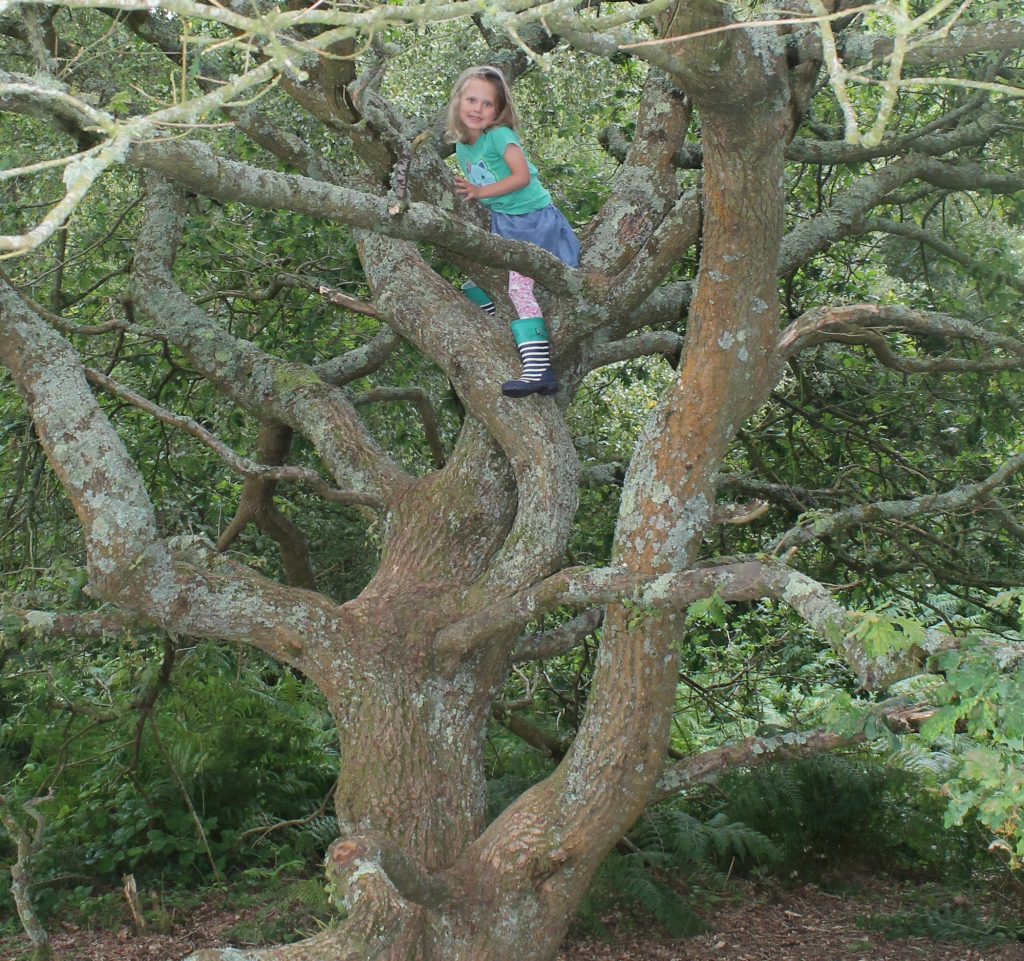
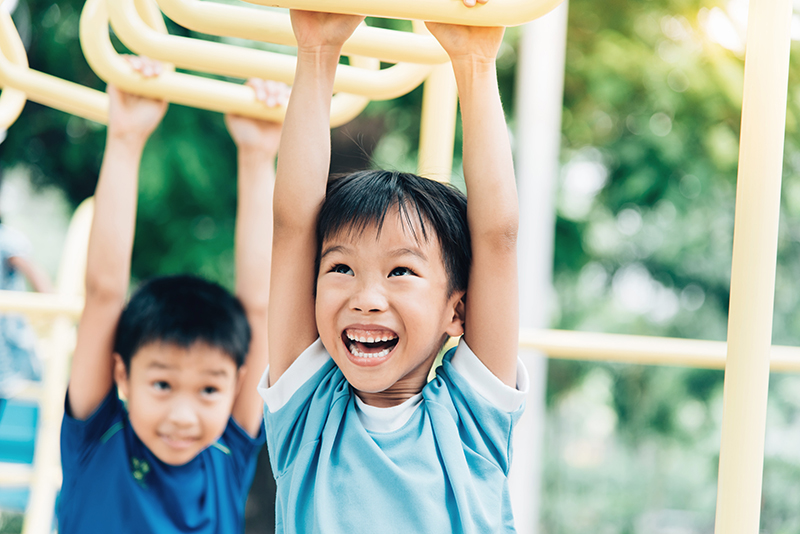
Park Power
Play Park designs are more dynamic than ever. Such spaces provide the perfect environment for our young people to develop physically in many ways over time. I still remember the first time my eldest conquered the monkey bars and my youngest (after two years) getting to the top of the climbing frame.
With both our children, as they got older, the favourite activity was to be timed doing a lap of the park, every visit trying to beat the last record. Great activity which involves very little effort from the adult!
Disco Development
Kitchen discos have always been a favourite pastime in our house. Songs with actions are great fun and then this can evolve into the very many online dance routines you can follow. My kids’ favourites were, ‘Koo Koo Kanga Roo’ and ‘Kidzbopkids’. Graduating to actually following dances is fantastic for developing co-ordination and ensuring they can pull some great moves at discos when they are older!
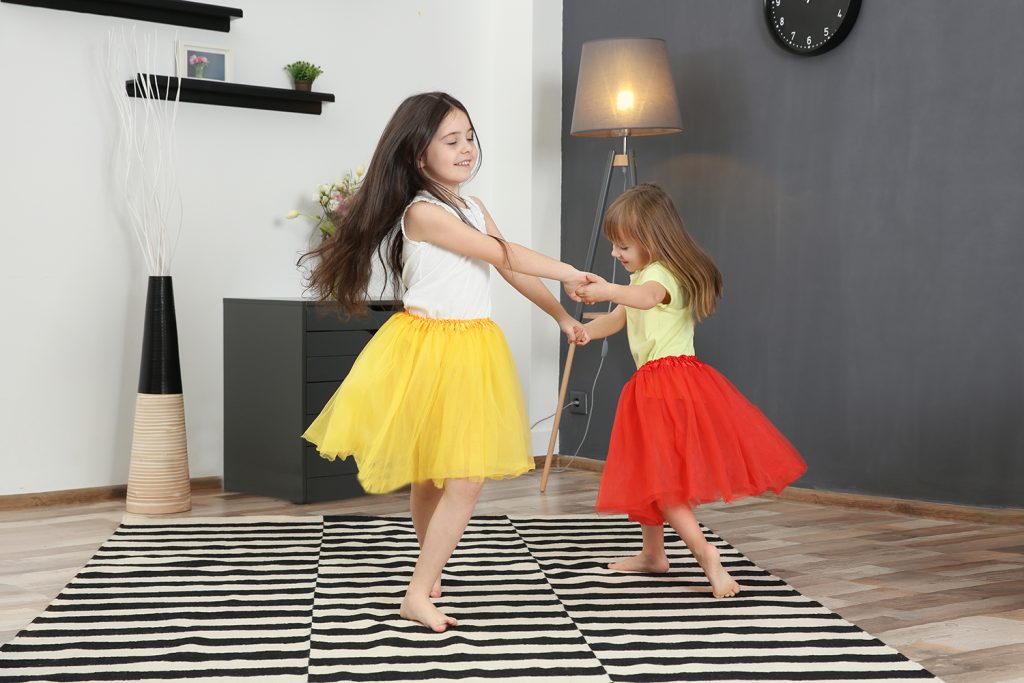
Rainy Day Explorer
If we can bare it, our houses are ready-made playgrounds. Obstacle courses were one of my children’s highlights, now rebranded ‘the floor is lava’. Getting from one part of the house to another without touching the floor is great fun AND great for physical development.
The most fun is always had with things that aren’t toys.
Fiddly Fingers
I have a vivid memory of watching my child carefully and proudly picking up raisins. This pincer grip is an essential skill and fine motor skills such as this can be developed in a variety of ways, here are just a few…
Independent skills
- ‘Hands off’ help for meal times. The more children can do themselves (including buttering bread, pouring drinks) the more rapidly their skill and confidence will develop.
- Dressing myself. It is incredible in nursery settings how young they get them to put on their wellies to go outside. Quite simply the more children do, the more they can do!
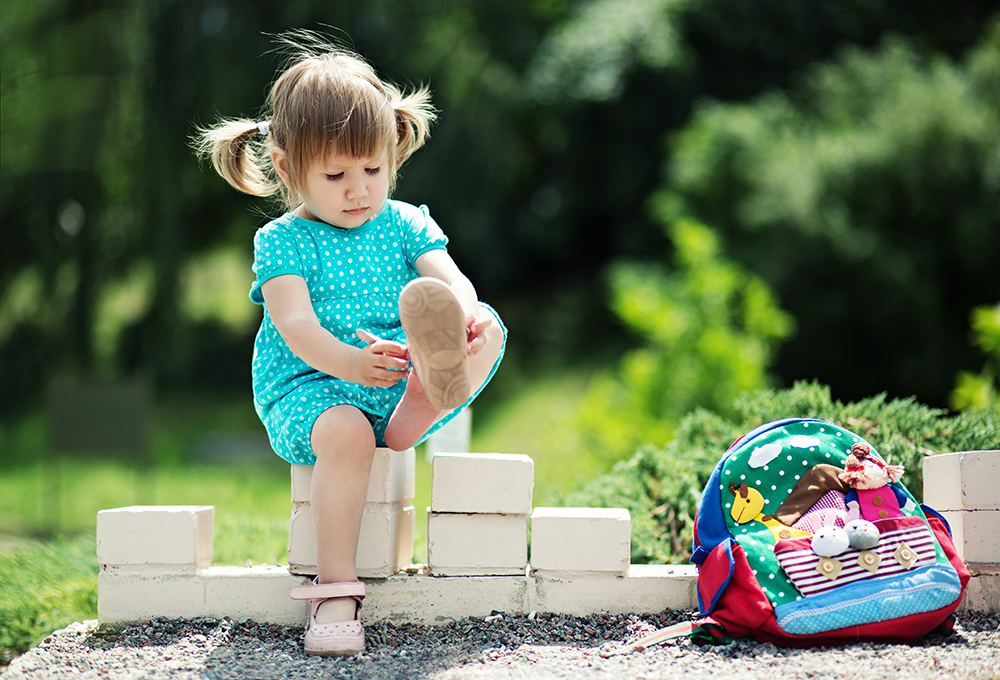
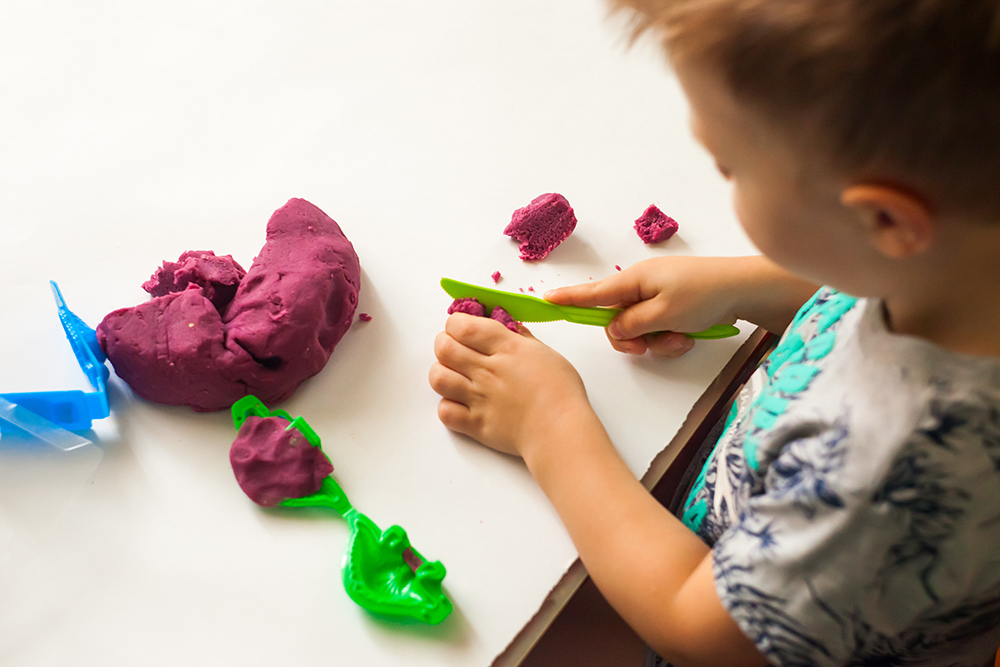
Fine motor play
- Playdough and slime are great for strengthening muscles and increasing control.
- Building blocks – how high can you go before they fall?
- Puzzles – start big and increase in challenge.
- Water play – tubs and cups at bath time is a win.
- Threading – tube pasta on to string with a straw at the end is great.
And so many more – get creative!
The main and most crucial element of physical development is resisting the urge to help. Helicoptering in only says, ‘I don’t think you can do it.’ Watching them struggle, painful though it is, empowers them and helps them to grow.
Words of encouragement, an environment of safety and as little help as possible!
Rachel x
This Blog series looks at the 7 key areas of learning in the Early Years Foundation Stage and links activities featured in our Fun To Learn magazine range that will help support this development.
Images: © Redan | © Shutterstock

